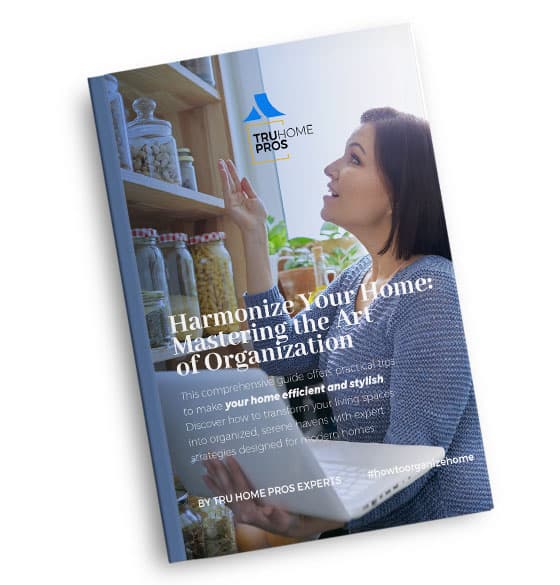Gas vs. charcoal grills for Sarasota outdoor kitchens

Introduction
When it comes to outdoor cooking in Sarasota, there’s a significant debate brewing among grill enthusiasts: Gas vs. Charcoal grills. Each option has its loyal supporters, and both have distinct advantages and disadvantages. As the weather invites you to head outdoors, deciding the right grill for your outdoor kitchen can be a fun yet overwhelming process. So, let’s dive into the nitty-gritty of gas and charcoal grills, helping you make the best choice tailored for Sarasota’s sunny climate.
Understanding the Basics
Before we break down the features, benefits, and drawbacks of gas and charcoal grills, it’s essential to understand what sets them apart at their core. Grills are primarily designed to cook food using high temperatures, but the fuel source greatly influences the cooking time, flavor, and maintenance.
Gas grills use propane or natural gas, while charcoal grills utilize charcoal briquettes or lump charcoal. Each fuel type brings unique flavors and convenience options to the table, making your grilling experience one-of-a-kind.
Flavor Profiles
One of the most compelling reasons people lean toward charcoal is the flavor. When you cook over charcoal, the smoke produced adds a distinct, rich, and smoky flavor that many grilling aficionados swear by.
In contrast, gas grills deliver a cleaner burn, giving you more control over the cooking process.
Smoky Goodness of Charcoal
Charcoal burns hotter and longer than gas, which means it can impart more smoke onto your food, perfect for achieving that ideal barbecue flavor. When smoking meats or preparing traditional barbecue favorites, many chefs prefer charcoal for its unique taste.
Convenience of Gas
Gas grills are often equipped with features that allow for quick adjustments to temperature and cooking times. You can easily control the heat by turning a knob—making them incredibly convenient for quick meals.
Heat Control and Temperature Regulation
Controlling temperature is crucial for achieving perfect grilling results. The method you use can significantly influence your cooking process.
Charcoal Grill Temperatures
Managing temperatures with charcoal requires a bit more skill. You have to monitor the airflow and placement of the coals, using vents or adjusting the amount of charcoal you’re using. This can be an exciting challenge for those who love culinary experimentation.
Gas Grill Temperature Control
Gas grills, on the other hand, often have built-in thermometers and are more straightforward to adjust. This allows for precise control, making it easier to achieve the desired results every time. The instant-on capability of gas also means you can get started grilling without the long wait for the charcoal to ignite.
Ease of Use and Setup
Here in sunny Sarasota, backyard barbecues can often become impromptu social events. Thus, ease of use is a critical factor for many homeowners. Let’s break down the ease of use for both types of grills.
Setting Up Charcoal Grills
Setting up a charcoal grill is a ritual in itself. Many enthusiasts enjoy the process—from lighting the coals with lighter fluid or a chimney starter to feeling the heat as the barbecue comes to life. However, this ritual can also demand patience and preparation time.
Gas Grill Setup
Gas grills, however, can simply be ignited with the turn of a knob and a push of a button. No waiting, no fuss, just immediate cooking gratification! This ease of setup makes gas grills particularly appealing for spontaneous gatherings.
Maintenance and Cleanup
Maintaining your grill can be crucial for its longevity and performance. Understanding the maintenance needs for both gas and charcoal will help keep your outdoor kitchen looking and functioning its best.
Charcoal Grill Maintenance
Clean-up after a charcoal grilling session can be more labor-intensive. The ash and leftover charcoal need to be disposed of properly, and the grill grates frequently require scrubbing to remove stuck food particles. However, this can also serve as a great opportunity to bond with family over chores!
Gas Grill Maintenance
Gas grills are typically easier to clean than charcoal grills. Most have removable trays to catch grease and drippings, allowing you to keep your grill tidy with minimal effort. A quick wipe down after use usually suffices.
Cost-Effectiveness
Considering your budget when choosing between gas and charcoal grills is essential. Both options come with their own cost implications that might influence your decision.
Investment in Charcoal Grills
Charcoal grills can often be less expensive upfront. The market offers various options ranging from basic models to high-end setups. Plus, charcoal prices can fluctuate, affecting your long-term grilling costs. However, charcoal grilling can also require more frequent purchases of fuel.
Long-Term Costs of Gas Grills
While gas grills tend to have a higher initial price tag, their operational costs can be more economical in the long-term. You’ll find propane or natural gas to have consistent pricing, and the convenience of gas may justify the higher purchase price.
Unique Features of Each Grill
Another consideration is the unique features each type of grill presents. Various models offer diverse functionalities that might sway your decision.
Charcoal Grilling Features
Many charcoal grills come with additional features such as adjustable grates for better heat control, built-in thermometers, and side trays for food prep. Also, there are various types of charcoal grills—from kamado to barrel-shaped—allowing you to choose a style that suits your needs.
Gas Grill Offerings
Gas grills come in various shapes and sizes as well, with options for side burners, rotisserie kits, and even integrated smoke boxes. These features can elevate your cooking experience and offer versatility for different types of cuisine.
The Social Aspect of Grilling
In Sarasota, grilling isn’t just about cooking; it’s a social activity. How you grill can influence how much fun you have while entertaining family and friends. The choice between gas and charcoal can play an important role here.
Gathering Around the Charcoal Grill
Charcoal grills tend to create a more communal cooking experience. The process can be more engaging, encouraging guests to gather around and participate in the cooking adventure. This fosters good conversations and creates vibrant memories.
Convenient Gas Grill Parties
On the flip side, gas grills allow for seamless cooking that can make hosting larger groups easier. The quick start-up time can be a key advantage when everyone is ready to eat, and you want to keep the party fluently going.
Health Considerations
Another critical aspect to consider when choosing between gas and charcoal is the potential health implications of each option.
Charcoal Grill Health Factors
Charcoal grilling can produce carcinogens, especially when meats are cooked at high temperatures. However, marinating your meats can reduce these risks and chemical compounds. Regular clean-ups also minimize potential health hazards.
Healthier Gas Grilling
Gas grills, while also requiring care, typically produce fewer carcinogenic substances. Moreover, the ability to control temperatures can help you avoid the overcooking that often leads to charred food.
Environmental Impact
Finally, let’s explore the environmental facets of gas vs. charcoal grilling. As environmental awareness grows, many are considering the sustainability of their cooking choices.
Charcoal’s Environmental Footprint
Charcoal production can have an environmental impact, particularly when it involves deforestation for sourcing wood. Sustainable alternatives, such as lump charcoal from recycled wood, do exist and can be better for the environment.
Gas Grilling and Sustainability
Gas grilling relies on fossil fuels, which contribute to greenhouse gas emissions. However, using natural gas as an alternative can lessen this footprint, particularly when connected to local utility services. Additionally, many gas grills now feature efficient burners to minimize consumption.
Final Thoughts on the Best Option for Sarasota
Choosing between gas and charcoal grills is subjective and ultimately depends on personal preference, cooking style, and lifestyle. Each type has its strengths and weaknesses, and the right choice may vary depending on your unique outdoor cooking needs.
With Sarasota’s warm climate and vibrant outdoor living culture, both gas and charcoal grills have a place in your outdoor kitchen. Whether you’re enjoying spontaneous visits from friends or hosting grand barbecue gatherings, the grill you choose will set the tone for your culinary adventures.
Chime In: Your Grill Preference
So, what do you prefer? Are you team gas with its convenience and control? Or do you favor charcoal, relishing the smoky flavor? We’d love to hear your thoughts on the topic!
For More Information
If you’re still on the fence about which grill suits your Sarasota outdoor kitchen best, we encourage you to explore our myriad of resources. And don’t forget to Download Our Brochure to enhance your decision-making process!
What’s Next: Evaluation and Inspiration
Once you’ve settled on your grill of choice, it’s time to consider other aspects of your outdoor kitchen. From cabinetry and storage solutions to seating arrangements, the layout will play a significant role in how you enjoy grilling. TRU Home Pros specializes in creating personalized outdoor kitchen spaces tailored to your needs.
The Ice Cream on Top
Your outdoor kitchen isn’t just about the grilling; it’s about the overall experience! Whether you’re whipping up burgers for a casual lunch or hosting a gourmet dinner party, the right setup can make all the difference.
As experts at TRU Home Pros, we can help you create a space that not only meets your grilling needs but also enhances your outdoor entertainment. Why not take the plunge and Book a Free Consultation with us today? Let’s craft a kitchen that brings your culinary dreams to life!
Crafting Your Perfect Outdoor Kitchen
In the midst of all this delicious decision-making, remember that the vision you have for your Sarasota outdoor kitchen can become a reality. By weighing the critical factors like taste, ease of use, maintenance, and social engagement, you can arrive at the perfect solution that complements your lifestyle.
Let’s get cooking—see you at your next barbecue!




